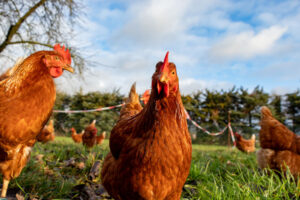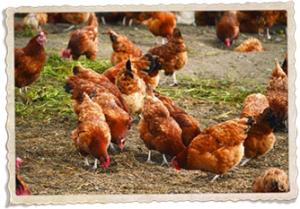Chicken owners are always on the hunt for effective ways to manage their flock’s waste. The good news? Chicken manure, rich in nitrogen, is a fantastic asset to your compost pile, turning your chickens’ waste into nutrient-dense compost for your garden. Let’s talk about how you can transform chicken waste into a gardener’s goldmine.
The Dos and Don’ts of Composting Chicken Manure
Composting chicken waste is straightforward, but there are a few key points to keep in mind:
- Do: Mix chicken manure with high carbon materials like leaves, straw, or sawdust. This helps balance the high nitrogen content and reduce smell.
- Don’t: Apply fresh chicken manure directly to your plants. It’s too “hot” and can burn plants. Composting allows it to break down and become plant-friendly.
Creating Your Compost Pile
- Choose Your Spot: Find a location in your yard that’s convenient for both dropping off waste and turning your compost pile.
- Start Layering: Begin with a layer of high-carbon material, followed by a layer of chicken waste, and so on. Aim for a 2:1 ratio of carbon to nitrogen materials.
- Turn Regularly: Turn your compost pile every few weeks to speed up the decomposition process and keep the compost well-aerated.
- Wait for Magic: In a few months, your compost should be ready. It should look like rich, dark soil and have a pleasant earthy smell.
The Fruits (and Veggies) of Your Labor
Now, you’re ready to use your compost. Spread it in your garden beds or around your plants and watch them flourish. Not only does compost enrich the soil, but it also improves water retention and suppresses plant diseases. It’s a win-win-win situation for your garden, your chickens, and you!
Managing chicken waste doesn’t have to be a daunting task. By turning it into compost, you can help your garden thrive while keeping your coop clean. If you’re considering adding more chickens to your flock or looking for more advice on chicken care, visit Chickens for Backyards today.

